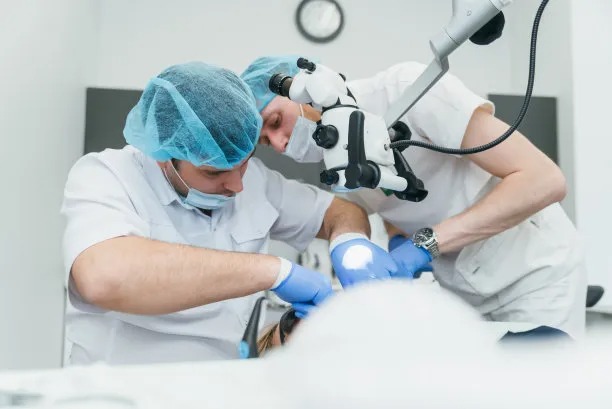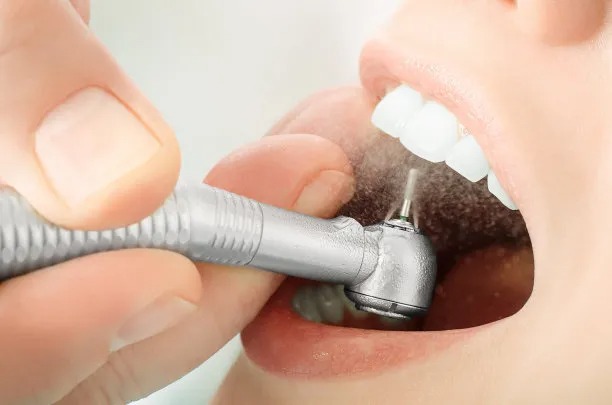Summary: The decision to extract a tooth is one of the most significant aspects of maintaining optimal oral health and comfort. This article explores the various scenarios in which tooth extraction becomes necessary, including the impacts of dental decay, overcrowding, gum disease, and the overall benefits of timely extraction. By understanding these circumstances, patients can make informed decisions, leading to better health outcomes, improved comfort, and long-term dental stability. We emphasize the importance of consulting with dental professionals and recognizing when intervention is essential, ultimately ensuring a healthier and happier smile.
1. The Role of Tooth Decay in Extraction Decisions

Tooth decay, or dental caries, is a primary reason for tooth extractions. When decay penetrates deep into the tooth, it can compromise the integrity and function of the tooth structure. As the decay progresses, it often leads to severe pain, infections, and even abscesses, which can have far-reaching effects on overall health.
In many cases, when tooth decay reaches the pulp or nerve, root canal treatment may be an option. However, if the damage is extensive and the tooth is beyond repair, extraction becomes essential. Unattended decay can worsen, causing significant discomfort and potential systemic infections that can affect other areas of the body.
Understanding the implications of tooth decay highlights the importance of regular dental check-ups, which can help in detecting decay early and prevent the need for extraction. Prompt intervention can often save a tooth that may otherwise be lost due to neglect.
2. Managing Overcrowding Through Extraction
Tooth extraction is often integral in managing overcrowding in the mouth. As dental arches can only accommodate a specific number of teeth, overcrowding can lead to misalignment, impacting not only aesthetics but also proper dental function.
In particular cases, orthodontic treatment may require the removal of one or more teeth to create adequate space for remaining teeth to align correctly. This approach not only enhances the appearance of the smile but also helps in achieving more effective oral hygiene practices, as crowded teeth are often harder to clean, leading to cavities and gum disease.
Moreover, addressing overcrowding through extraction can lead to improved temporary and long-term comfort, as patients find relief from the pressure and discomfort caused by misaligned teeth. Thus, timely extraction is a critical component of effective orthodontic care.
3. The Link Between Gum Disease and Tooth Extraction
Gum disease, particularly in its advanced stage known as periodontitis, can lead to the loss of supportive structures around the teeth. This condition can result in teeth becoming loose and painful, making extraction a necessary option when teeth can no longer be preserved.
Patients suffering from severe gum disease may experience not only physical discomfort but also systemic health issues. Research has shown associations between periodontal health and a variety of health conditions, including heart disease and diabetes. In such cases, extracting the affected teeth not only aids in managing oral health but also improves overall health outcomes.
Regular dental visits help monitor gum health and prevent the progression of gum disease. By opting for timely extraction when required, patients can maintain better dental and general health, alleviating discomfort and lowering risks associated with untreated gum disease.
4. The Benefits of Timely Tooth Extraction
Timely dental extractions can yield numerous benefits, promoting better oral health and comfort. One of the major advantages is pain relief; once a problematic tooth is removed, patients often experience a significant reduction in discomfort and pressure.
Additionally, early extractions can pave the way for healthier, more restorative dental treatments. For instance, if a tooth must be replaced, extracting it sooner rather than later can simplify the process of implant placement or bridge installation.
Finally, timely extractions can also promote overall wellness. By preventing infections from spreading and averting the complications associated with untreated dental issues, patients can better focus on maintaining their oral hygiene and overall health.
Summary:
In conclusion, knowing when to extract a tooth can significantly impact oral health and personal comfort. The multifaceted reasons for extraction, ranging from decay to overcrowding and gum disease, underscore the importance of making timely decisions and seeking professional guidance. A proactive approach can enhance both dental and overall health, ensuring a more pleasant experience throughout ones life.
This article is compiled by Vickong Dental and the content is for reference only.
Vickong Dental
Vickong Dental is a large medical group established in Hong Kong in 2008 by professors from well-known medical universities in Guangdong and Hong Kong, as well as medical doctors from key national '985' universities (including Master's supervisors and senior professors). The chain of branches brings together expert dentists with PhDs and Master's degrees from Hong Kong and Mainland China, committed to providing high-quality dental treatment.
"Vickong Dental Practices the University Motto of 'Healing and Serving Society,' with a Stable Operation for Sixteen Years. It Has Been honored with Hong Kong Enterprise Leaders's Choice,' and is a Global Trusted Implant Center for the Nobel Implant System. Recommended by Hong Kong Metro Broadcast and Guangdong Television, it Serves Customers from Over Thirty Countries and Regions, Gaining the Trust and Favor of Citizens from the Guangdong-Hong Kong-Macau Greater Bay Area and Surrounding Cities.

Thousands of customers' unanimous praise
The most recognized and highly recommended dental service by customers in the Guangdong-Hong Kong-Macau Greater Bay Area
We Ensure You Receive Detailed Care and Attention Here
Hong Kong standards, Shenzhen prices, Your Trusted English-speaking dentists

Vickong Dental Medical-Grade Instrument Disinfection Process
Vickong Dental Medical-Grade Instrument Disinfection Process

Vickong Dental Chain: A Warm and Comfortable Environment for Treatment






Appointment Hours

Q&A
Why choose Vickong Dental?
Vickong Dental practices the university motto 「Medicine to Benefit Society」, with each branch bringing together highly qualified dentists with doctoral and master’s degrees from Hong Kong and the Mainland, and has maintained seventeen years of steady operation。Recipient of 「2024 Hong Kong Enterprise Leaders Brand」, 「2025 Hong Kong Enterprise Leaders Brand」, a Nobel Biocare Global Trusted Implant Center, and a brand recommended by Metro Radio Hong Kong and Guangdong TV。
To date, we have served customers from more than thirty countries and regions,earning exceptionally high word-of-mouth recognition and trusted recommendations from residents across the Guangdong-Hong Kong-Macao Greater Bay Area and surrounding cities
We have eight major branches in Zhuhai、Shenzhen,and a consultation and service assurance center in Hong Kong,so you can book a free consultation at any time for any questions,which is very reassuring.
If I do not accept the quotation after the CT scan, will I be charged??
No! As long as the actual treatment has not started, you will not be charged any fees.
Will there be any additional charges during the treatment process?
No, there won’t be any additional charges. Before treatment begins, we will clearly explain the treatment plan and its corresponding fees. Only after the patient agrees and signs the consent form will we proceed with the dental service.
Can I pay in Hong Kong dollars?
Yes. Vickong Dental accepts payment in Hong Kong dollars. The amount will be converted based on the exchange rate of the day, and the applicable rate will be clearly communicated to you in advance.
Can I reschedule my appointment at any time?
Yes. Please contact us via **WeChat** or **WhatsApp** as early as possible, providing your original appointment time and details, along with your preferred new date and time slot for rescheduling.













